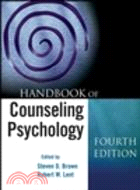目次Part I. Professional and Scientific Issues.
1. Legal and Ethical Issues Affecting Counseling Psychologists.
2. The Changing Landscape of Professional Practice in Counseling Psychology.
3. Technological Advances: Implications for Counseling Psychology Research, Training, and Practice.
4. Social Justice and Counseling Psychology: A Challenge to the Profession.
5. The Growing Internationalization of Counseling Psychology.
6. The Interface of Counseling Psychology and Positive Psychology: Assessing and Promoting Strengths.
Part II. Diversity and Multicultural Psychology.
7. Conceptual and Measurement Issues in Multicultural Psychology Research.
8. Theoretical and Empirical Advances in Multicultural Counseling and Psychology.
9. Multicultural Competence in Counseling Psychology Practice and Training.
10. Social Class and Classism: Understanding the Psychological Impact of Poverty and Inequality.
11. Psychology of Gender.
12. Counseling Psychology and Sexual Orientation: History, Selective Trends, and Future Directions.
13. Advances in Conceptualizing and Studying Disability.
Part III. Counseling and Supervision.
14. Measuring and Improving Psychotherapy Outcome in Routine Practice.
15. The Importance of Treatment and the Science of Common Factors in Psychotherapy.
16. A Tripartite Model of the Therapeutic Relationship.
17. Facilitating Insight in Counseling and Psychotherapy.
18. Therapist Self-Awareness: Interdisciplinary Connections and Future Directions.
19. Culture and Race in Counseling and Psychotherapy: A Critical Review of the Literature.
20. Developments in Counselor Training and Supervision.
Part IV. Career Development and Vocational Psychology.
21. Advances in Vocational Theories.
22. Vocational Psychology and Individual Differences.
23. Conceptualizing and Diagnosing Problems of Vocational Decision-Making.
24. Contextual Factors in Vocational Psychology: Intersections of Individual, Group, and Societal Dimensions.
25. Work, Family, and Dual-Earner Couples: Implications for Research and Practice.
26. Vocational Counseling Process and Outcome.
27. Understanding and Promoting Work Satisfaction: An Integrative View.
Part V. Development and Prevention.
28. Risk and Resilience.
29. Promoting Positive Development and Competency Across the Lifespan.
30. Promoting Health and Preventing and Reducing Disease.
31. Suicide Prevention.
32. Substance Abuse Prevention and Treatment.
33. Preventing Eating and Weight-Related Disorders: Toward an Integrated Best Practices Approach.
34. School Violence and Bullying Prevention: From Research-based Explanations to Empirically-based Solutions.












